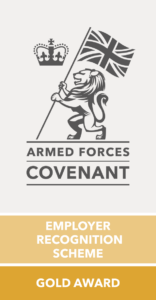In the UK, employees and employers make their own individual employment agreements with each other and collective employment ‘rights’ are not legally enforceable unless a collective agreement is specifically incorporated into an employee’s contract. This is in contrast to the law in many other EU member states. The legal right to conduct collective bargaining is the essential basic feature of a recognised trade union.
As a general rule, collective bargaining involves negotiations on pay, hours and holidays (the core topics). Parties often voluntarily reach agreement on other issues.
There must be clear evidence to show both parties have mutually recognised one another for the purposes of collective bargaining, and evidence of actual negotiations on collective agreements. Discussions with a union about various matters over a long period of time doesn’t make those talks legally recognised.
It’s important to note that Collective Representation extends to all staff within the scope of the recognition, whether they are Trade Union members or not.
What is in the Scope of a Recognition Agreements?
Most agreements provides that there is a pivotal and unarguable mutual position – that we as a Company recognise the rights of the Trade Union to represent its members (and the entire collective) within the framework of the agreement; and that the Union recognises our right to manage our own affairs for the benefit of shareholders, employees and customers. Our mutual interests are of course to maintain a viable, economically effective, efficient, safe and healthy workplace which offers employers and employees secure and fruitful work.
Principally, a recognition agreement confers appropriate rights of representation on the elected Trade Union officials to represent their members rights in a number of key areas.
The agreement generally provides that your organisation will consult with appropriate Trade Union officials on key areas as a minimum:
- Pay
- Hours of Work
- Holidays
- Redundancy
- Facilities for TU staff
It’s important initially for us to understand what ‘consultation’ means, and what ‘negotiation’ means.
In principal, ‘Consultation’ does not require agreement to conclude. It’s an oft-repeated line, but ‘Consultation does not mean asking permission’ is a mantra that is used both by managers, and by Trade Union staff.
Negotiation involves discussion to make agreements where the parties involved have some difference of interest or simply negotiation of how a task or project will be carried out. Consultation involves talking to interested parties both to explain developments and issues and in order to canvas their views and ideas that they can contribute.
Typically negotiation involves a greater level of democracy in decision making than consultation. In a negotiation there may be considerable uncertainty about what the outcome will be. In contrast managers who consult their employees may already have decided the core of what they intend to do – or certainly what the desired outcome is – from the outset.
Negotiation and consultation are an important part of employer/employee relations in the workplace. Managers will negotiate with trade unions and with individual employees over work related issues. Consultation is an important aspect of any type of change that managers are thinking about introducing.
Consultation and negotiation are both indicative of a greater level of industrial democracy in Britain today than in the past. They represent a move away from the old ‘tell and do’ approach to management to one of ‘involve and consult’.
Negotiations will take place in a workplace over pay and conditions, and about new working practices – as opposed to contractual changes.
Consultation will take place when managers want to introduce changes (large and small) and when they want to find out the opinions of ‘grass roots’ employees about management actions. When managers wish to change existing practice they may carry out a consultative exercise to find out ‘what are the main strengths and weaknesses of the existing system’ and ‘what approaches could be employed for changing the system’. In context, consultation means taking the views of all represented employees before finalising a decision, in the hope and spirit that canvassing views may produce a better or more palatable means of achieving the desired outcome.
In simplistic terms, if we plan to take a trip to London, we might consult on the means and method of travel, the route, the time required etc. A negotiation might mean that we don’t go to London at all!
In most cases, consultation is formal and determined by statute. For example, the requirement to consult on contract changes, on redundancy, on TUPE and other areas are protected by statute.
Day to Day – Representation
On a day to day basis, it is likely that the main contact you will have is with elected officials (‘reps’) who will seek to support their members on routine matters, such as disciplinary processes, grievances, absence management meetings etc. They may also seek to make representations outside of planned meetings, to alert you to issues, or to discuss any issues which you can influence. Whilst this part of the ‘behind closed doors’ discussions can bear fruit and be mutually beneficial, care should be taken to ensure that appropriate governance is maintained – such discussions require high trust on both parts.
Employees now have extended rights to appropriate representation from a designated TU rep in a number of processes (termed right of representation). Additionally you may allow representation in areas where it is neither required by statute or covered by your agreements.
- Individual issues, where an employer and employee need to discuss often sensitive issues. For example, an employee may have a complaint with their manager about bullying or discrimination, or a manager may feel an employee’s performance or conduct is falling below the required standard.
Workers have a statutory right to be accompanied by a fellow worker or trade union official at disciplinary or grievance hearings. In such meetings, the representative is allowed to make representations – generally via a statement at the beginning or end of a process – but it not allowed to answer questions on the employee’s behalf. If they would like to confer with the employee before answering a question, you should allow it via an adjournment. You should ensure that you outline the conduct expected at a meeting at the start, and ensure that you have offered all the opportunity to represent themselves appropriately at the end and that they are satisfied with the fairness of the proceedings. These statements should be noted. Workers do not have a ‘right’ to representation (in law) at investigation meetings, though in practice many employers allow it.
- Group issues, when employers need to communicate and consult with the whole workforce. This is often done in employee forums – also known as joint consultative committees or works councils.
Employers are required to consult employee representatives on many issues including: – collective redundancies – health and safety – transfer of undertakings. Any formal consultation meetings should be recorded in writing.
- Collective bargaining, related to the terms and conditions of employment, where negotiation often takes place between senior management and union representatives on an ongoing basis.
Recognised trade unions have the legal right to bargain about pay, hours and holidays. Most agreements by employers to recognise trade unions for collective bargaining are entirely voluntary. Again, notes should be taken to demonstrate the process.
- Change issues, for example where new products have to be developed or new equipment introduced as a result of economic circumstances.
The Information and Consultation of Employees (ICE) Regulations were introduced on 6 April 2005 and give all employees of businesses with 50 or more employees the right to request an information and consultation agreement.
Day to Day – Communication
In broad terms, you should seek to engage your collective Trade Unions as a key part of the business communication process; more formally, you should communicate directly with them prior to any significant announcements. Your recognition agreement provides for confidentiality, and therefore, where you choose to engage with them prior to announcements, you should ensure that the contract of confidentiality is covered and agreed. As a commercial company you are further bound by legislation surrounding significant commercial or financial updates.
Day to Day – Facility Time
By its nature, diligent application to the role of a TU representative will require time away from the daily tasks to complete. An agreement provides some framework for the allocation of time and resources to the Trade Union to allow for the effective discharge of their duties. Operationally, whilst this may create challenges, in my experience it is occasionally more beneficial to allow time off to settle disputes before they crystallise into major issues.
In all cases you are free to monitor and measure the time taken on Trade Union duties, and to be given clear indication of the expected requirement through the year. Of course there may be variations where there are complex personal cases, or if there are significant organisational issues when some leeway is sensible. It is advisable to set a framework at the beginning of the year and seek a means of measuring time taken through the year.
Day to Day – What information do we need to share?
Trade Unions and Employers have a requirement to share information to allow both to discharge their duties and responsibilities to each other.
The main elements are spelled out here.
In principal, the Trade Union has a right to request any and all information to allow them to effectively discharge their duties. This could cover (for example) pay information for those covered by the collective, accidents, absence, and other areas which are required to represent members appropriately. There are specific exclusions related to commercial or financial arrangements and other areas which may prejudice someone else’s interests.
Summary
Having recognised Trade Unions has both benefits and disadvantages – but many employers will focus mainly on the disadvantages. It’s true that an organised workforce has more strength, competence and ability to challenge than one which is not represented, and is more difficult for the less scrupulous employer to take advantage of their employees – which morally we know is right, but operationally can be more difficult.
A good TU representative is likely to be more aware of HR case and employment law than the majority of your managers, and is even likely to be more aware of your policies. Therefore, it’s vital that your managers are aware – acutely aware – of your own policies. They will be held to account for any failings to follow process set out in company policies and procedures.







